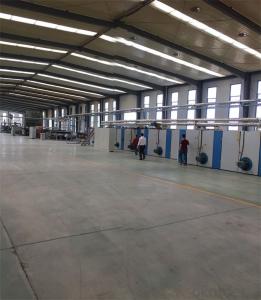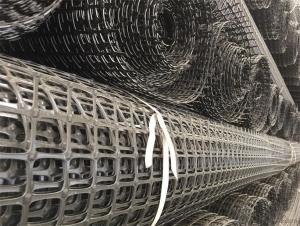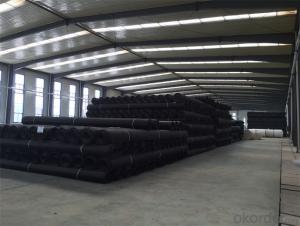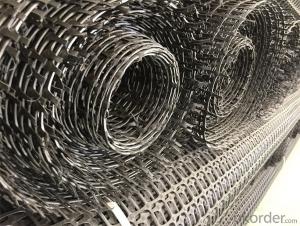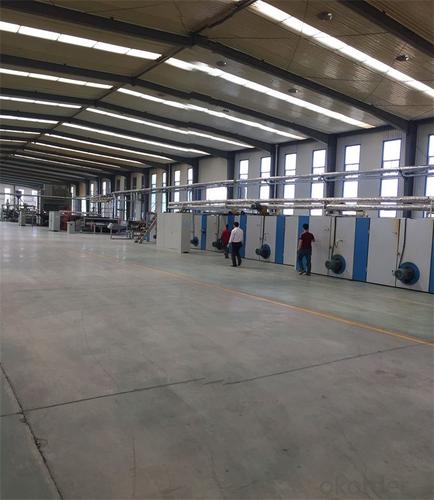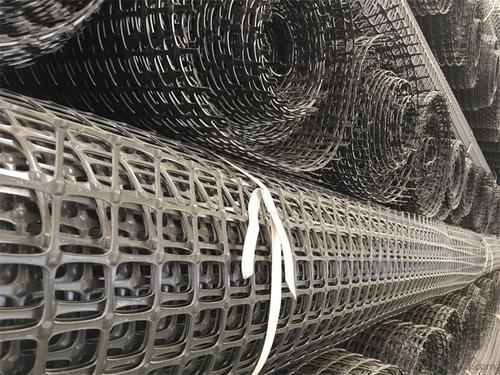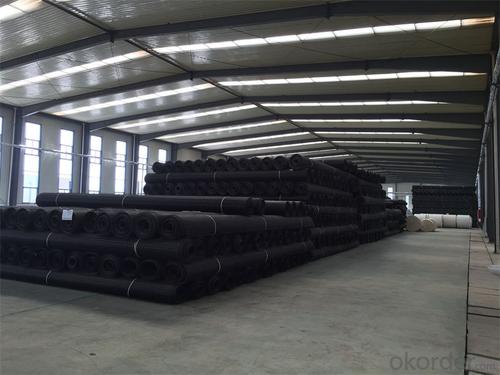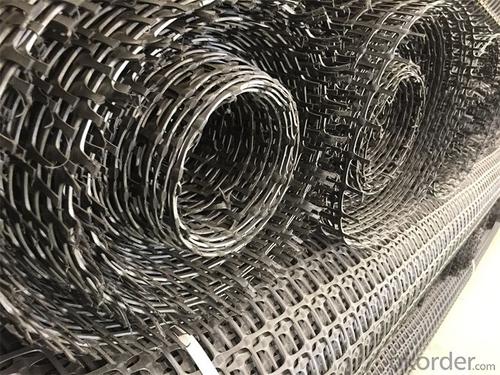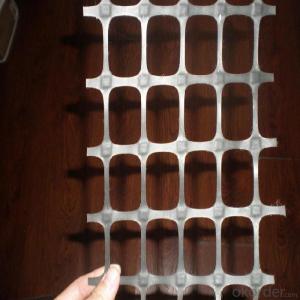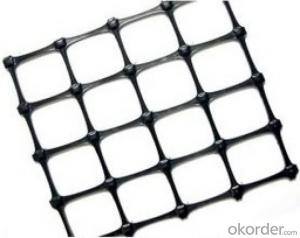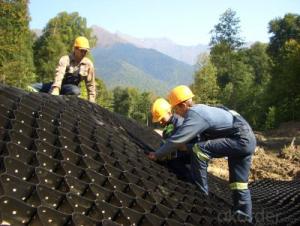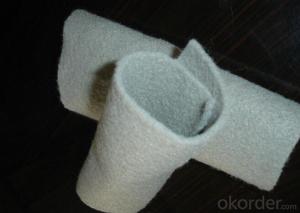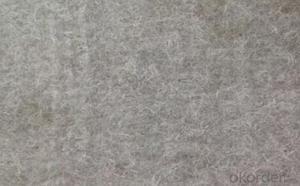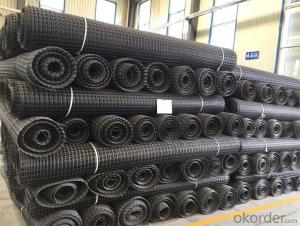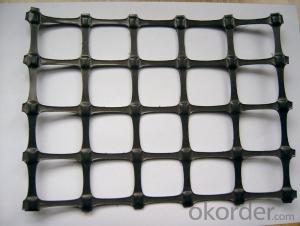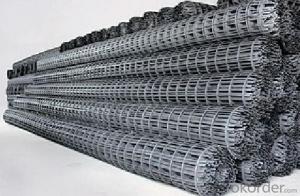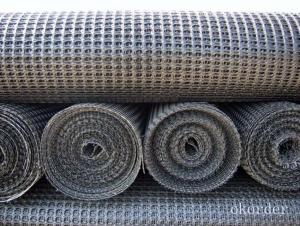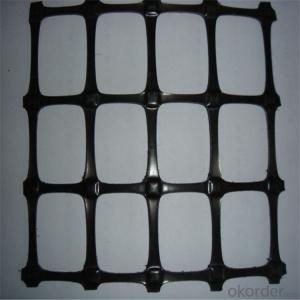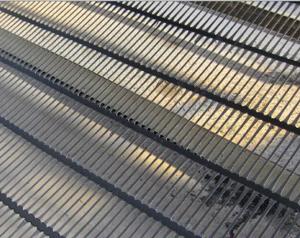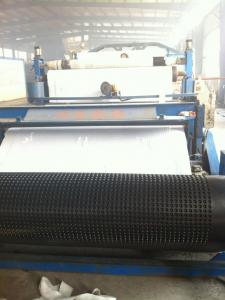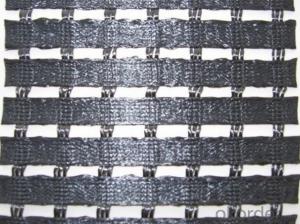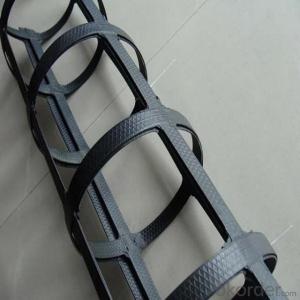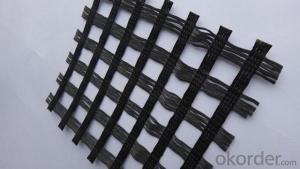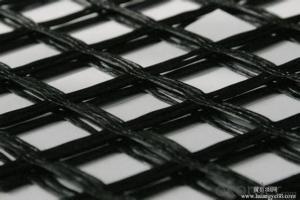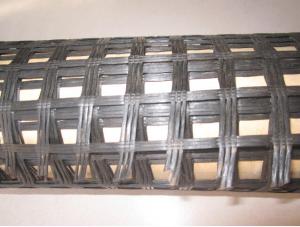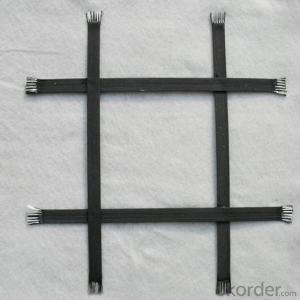High Tensile Strength Uniaxial Geogrid Geocells for Driveways
- Loading Port:
- Tianjin
- Payment Terms:
- TT OR LC
- Min Order Qty:
- 20000 m²
- Supply Capability:
- 50000000 m²/month
OKorder Service Pledge
OKorder Financial Service
You Might Also Like
Fiberglass Geogrid Introduction:
Fiberglass geogrid is a kind of planar mesh material using alkali-free fiberglass yarn as base body and then coated with high quality modified asphalt. It is warp knitted with oriental structure which gives full play of yarn strength and improves its mechanical property to make the product high tensile, tearing and creep-resistant. Moreover, the composite property of coating with asphalt makes full protection of the fiberglass matrix and greatly improves its wear and shear resistance. All the advantageous functions make the product have a good performance in pavement strengthening, track cracking and solving difficulties of strengthening the bituminous pavement.
Fiberglass Geogrid Features:
1. Light weight, high tensile strength, high modulus, low elongation and good toughness.
2. Corrosion resistance, no long-term creep, long life span.
3. Good physical and chemical stability and good thermal stability.
4. Resistant to fatigue cracking, high-temperature track and low temperature shrinkage cracking.
5. Delaying and decreasing crack reflection.
Specifications | PET20-20 | PET30-30 | PET40-40 | PET50-50 | PET80-80 | PET100-100 | PET120-120 |
Elongation(%) | 10%~15% | ||||||
Vert Tensile strength(KN/m) | 20 | 30 | 40 | 50 | 80 | 100 | 120 |
Horiz Tensile strength(KN/m) | 20 | 30 | 40 | 50 | 80 | 100 | 120 |
Grid(mm) | 12.5×12.5 20×20 24.5×24.5 | ||||||
Width(m) | 1—6 | ||||||
Fiberglass Geogrid Application:
1. Road surface asphalt overlay construction engineering; Asphalt layers
reinforcement.
2. Converting old cement concrete road into composite road; Restraining
reflection cracking caused by block shrinkage.
3. Road extension; Preventing and controlling the cracking caused by new
and old combination and uneven settlement.
4. Treatment of the conjunction between tunnel and bridge or foundation.
Packaging & Shipping:
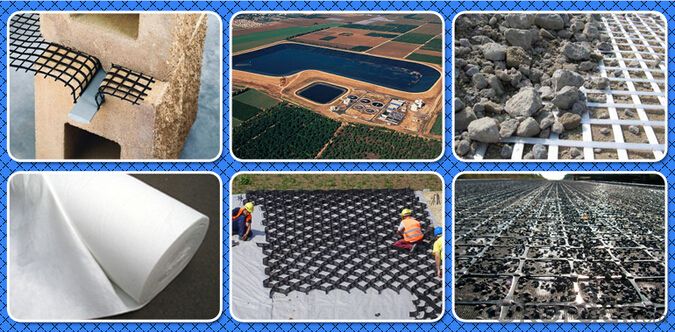
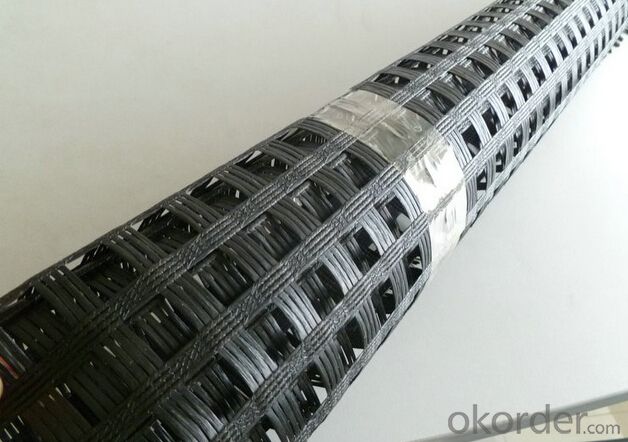
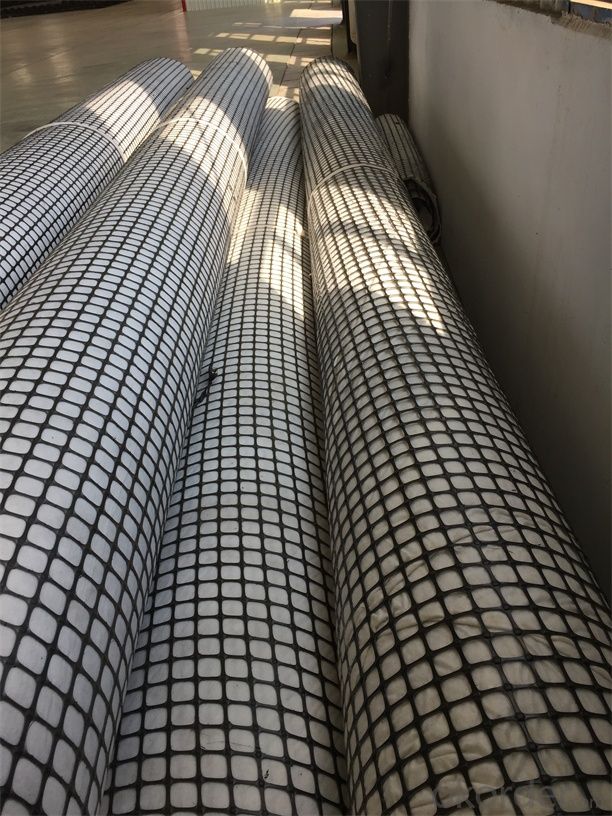
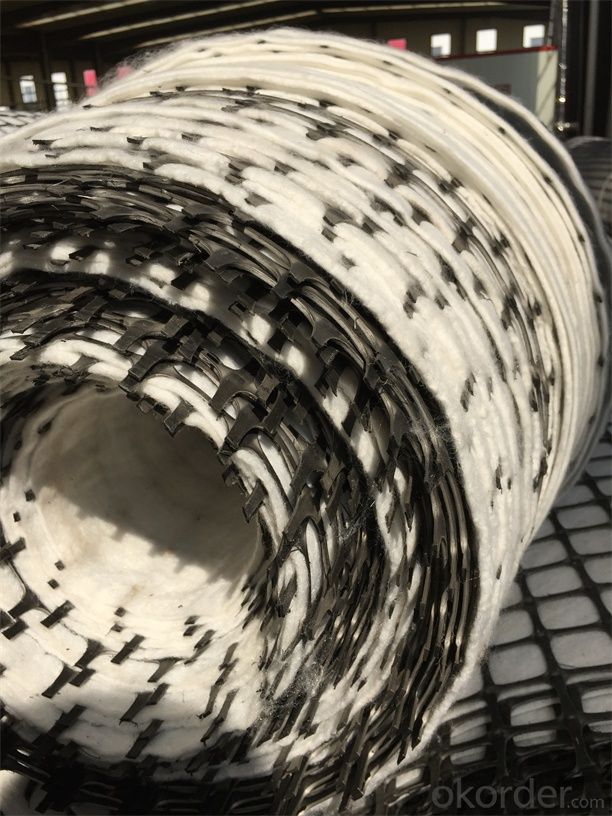
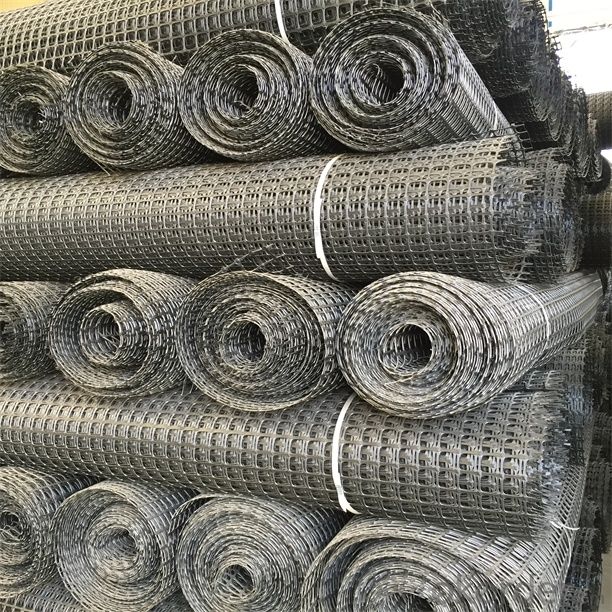
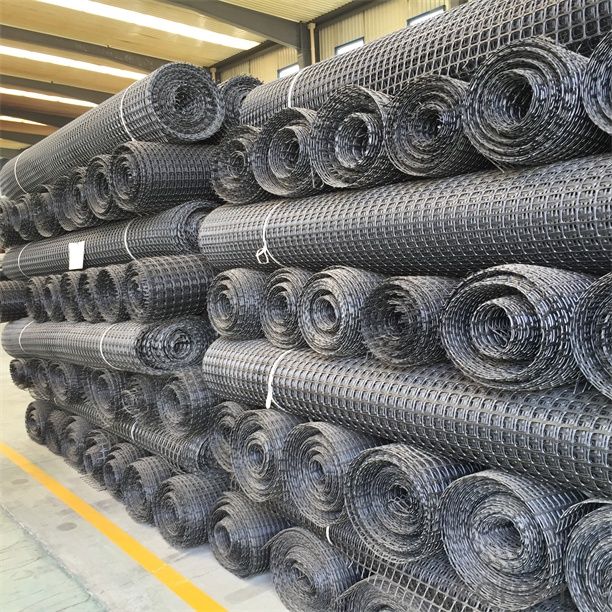
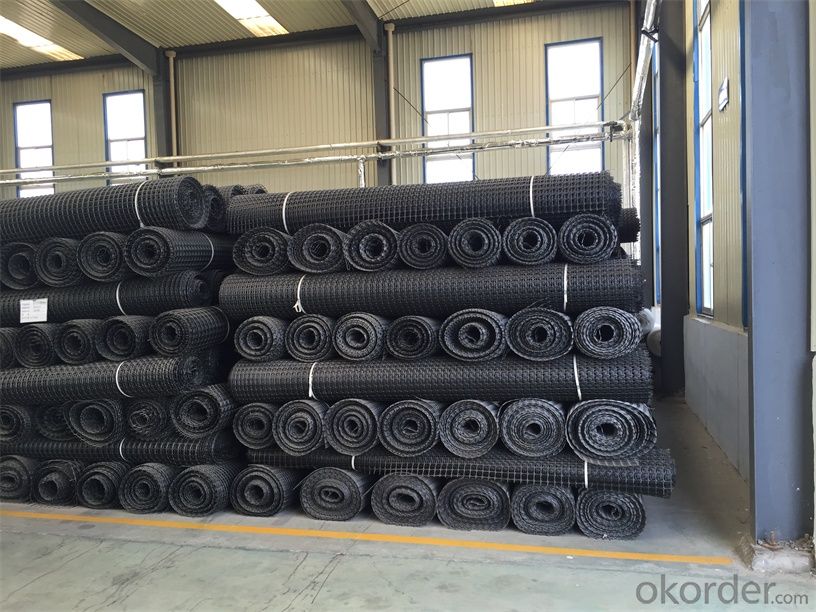
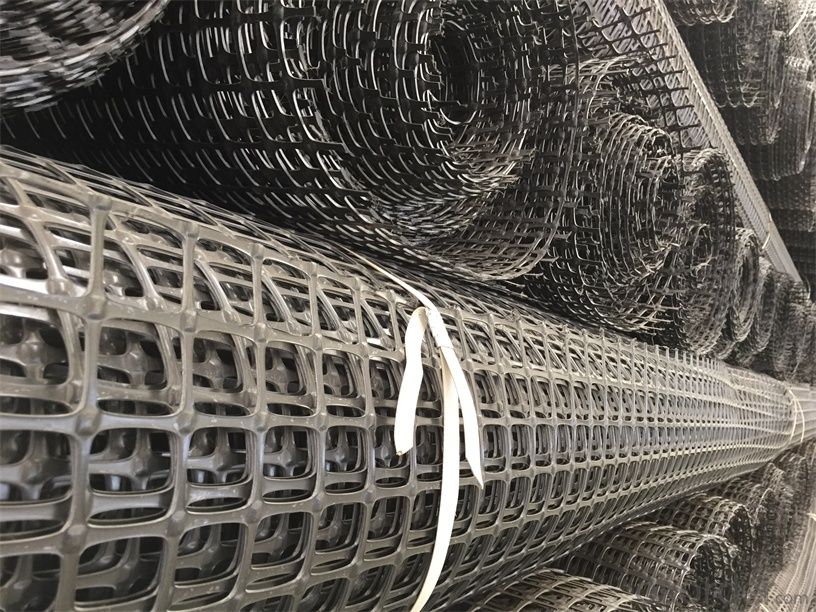
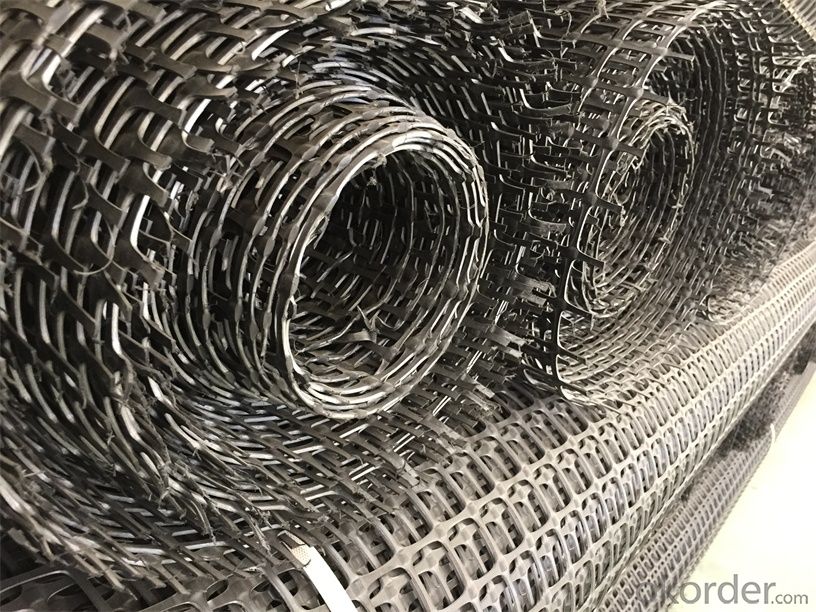
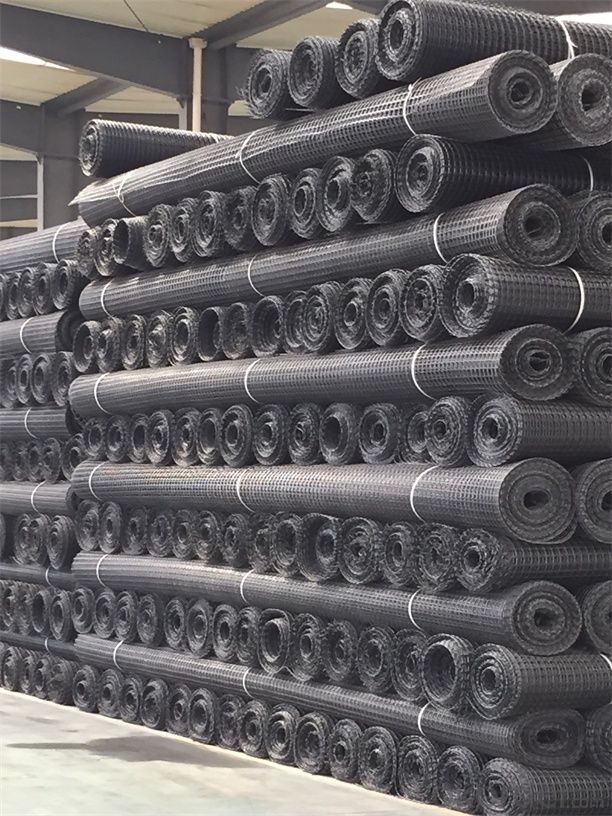
FAQ:
1. How to order your geogrid ?
a) Tensile strength in warp & weft direction
b) Grid size
c) Roll Width and length
d) Quantity
2. What is the Payment term?
a) TT
b) LC AT SIGHT
c) cash
d) 30% contact value as deposit ,the blance 70% be paid after received the copy of bl .
3. Delivery time
a) 19-25 days after received your depsit .
4. What is MQQ ?
a) 2500 m2 as MQQ , we can also produce sample for you .
Welcome to send your inquiry to us, and if you have any question, we can also help you.
- Q: What is the 110 type bidirectional geogrid?
- 110 type two-way geogrid refers to the geogrid in the horizontal and vertical direction of two can withstand the tensile strength of geogrid 110KN
- Q: Can geogrids be used in gabion wall construction?
- Yes, geogrids can be used in gabion wall construction. Geogrids are often used to reinforce the structure of gabion walls, providing additional strength and stability. They are typically placed within the gabion baskets to improve the overall performance and durability of the wall.
- Q: Introduction of steel plastic grille
- Construction technology of steel plastic grille
- Q: Asked the retaining wall engineering grille mistook polypropylene as high density polyethylene, how to do? Is there any remedy?
- What is wrong with the polypropylene in the geogrid in the retaining wall of the road? Performance will not be affected? Is there any remedy?
- Q: What are the advantages of using geogrids in ground improvement for liquefaction mitigation?
- Geogrids offer several advantages when used in ground improvement for liquefaction mitigation. Firstly, geogrids provide increased shear strength to the soil, which helps to prevent liquefaction during seismic events. They enhance the stability and load-bearing capacity of the ground by effectively distributing loads and reducing settlements. Additionally, geogrids improve the overall performance of the soil by increasing its stiffness and reducing its compressibility. This ultimately leads to a more stable and resilient ground, reducing the risk of liquefaction-induced damage. Furthermore, geogrids are lightweight, easy to install, and cost-effective, making them a practical choice for ground improvement projects.
- Q: How do geogrids improve the performance of geocomposites?
- Geogrids improve the performance of geocomposites by adding tensile strength and stabilization to the overall structure. They enhance the load-bearing capacity and reduce deformation, effectively reinforcing the geocomposite system.
- Q: How is a geogrid different from other geosynthetic materials?
- A geogrid is a type of geosynthetic material that differs from others due to its unique structure. Unlike geotextiles or geomembranes, which are typically made of woven or non-woven fabrics, a geogrid is composed of a grid-like pattern of polymers or metals. This grid structure provides the geogrid with exceptional tensile strength, allowing it to distribute loads more effectively and enhance soil stability. Geogrids are commonly used in applications such as reinforced soil slopes, retaining walls, and pavement systems, where their high strength and stiffness offer significant advantages over other geosynthetic materials.
- Q: Who knows the laying method of geogrid?
- When the f. nail is fixed, the grid overlapping distance is as follows: the longitudinal joint overlap distance is not less than 15cm, and the transverse overlapping distance is not less than 5cm. The longitudinal lap shall be placed on the top of the rear plate in accordance with the direction of asphalt paving.G. fixed nails can not be nailed on the glass, can not be directly hit the glass with a hammer. If the nail is found to be broken or loose after fixing, it will need to be fixed.H. to prevent the construction vehicle tires will be fiberglass grille and stick together. And the asphalt concrete paver wheel slip phenomenon, should be in the surface of the oil layer of stone, stone chip amount of 3m3/1000m2-5m3/1000m2.
- Q: Can geogrids be used in reinforcement of concrete pavements?
- Yes, geogrids can be used in the reinforcement of concrete pavements. Geogrids are commonly used to enhance the structural integrity and performance of concrete pavements by providing additional tensile strength and distributing loads more effectively. They can help prevent cracking and increase the overall durability of the pavement.
- Q: In the middle of geogrid foundation treatment process is belongs to the concealed work it
- According to the definition of concealed engineering
Send your message to us
High Tensile Strength Uniaxial Geogrid Geocells for Driveways
- Loading Port:
- Tianjin
- Payment Terms:
- TT OR LC
- Min Order Qty:
- 20000 m²
- Supply Capability:
- 50000000 m²/month
OKorder Service Pledge
OKorder Financial Service
Similar products
Hot products
Hot Searches
Related keywords
